If you want a pro-user experience on your Windows computer, you need to have a file manager that brings every feature you need. For some users, the built-in one does not bring the best experience and that’s where the third-party file manager apps come in. Using third-party software can be beneficial in multiple ways, including the unique features you get and a good experience. However, each tool has its downsides as well.
So, here we will discuss the top 5 most useful file managers you can use on Windows 10 and 11.
Part 1. 5 Best File Managers on Windows
If you search online, you will find multiple file managers for Windows 10/11 options. It is important to note that not all offer the same experience, and each has its downsides. So, here we will share the top 5 picks you can use, along with their features, pros, and cons. In this way, you will have a clearer vision of the value every tool brings you.
1. File Explorer - Best Built-in In File Manager for Windows 10/11
An integrated file manager in Microsoft Windows operating systems. It enables users to execute basic file management operations, including creating, renaming, deleting, and transferring files and browsing files and directories on their computers. Users may quickly and easily discover files using the robust search tool included in File Explorer. All versions of Microsoft Windows come with File Explorer.
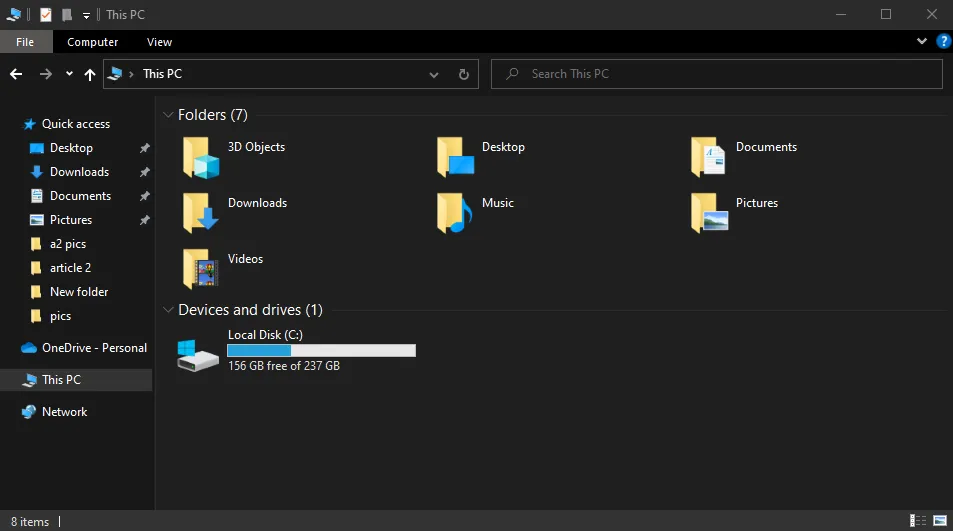
Key Features:
- File browsing
- File search
- Sharing files on the network
- File compression
- Management and organization with attributes
Pros:
- Quickly searches through huge data
- Similar interface to a browser with tabs
- Multitasking in moving, copying, and deleting files
Cons:
- Lacks advanced features and customizability
2. UPDF - Best File Manager on Windows for PDF Files
If you only have PDF files that want to manage on Windows, you can choose UPDF. UPDF is a great PDF file manager as it offers UPDF Cloud which allows you to store your PDF files so that you can reduce the storage issues on your computer and phones and allows you to access them anytime and anywhere. With UPDF Could, you can share the PDF with one link, QR code, or email directly.
It is also a PDF reader and editor capable of handling PDF files. With this software, you can browse, edit, convert, combine, divide, and watermark PDF files. Other features offered by UPDF include form-filling, password security, and annotation.
It is a great choice for people searching for an all-inclusive PDF solution since, along with all these features, it organizes your online and offline PDF files all in one place across different devices.
Experience the power of UPDF! Download now to seamlessly manage, read, and edit your PDF files. With UPDF Cloud for any time, anywhere access, it's the ultimate all-in-one PDF solution.
Windows • macOS • iOS • Android 100% secure
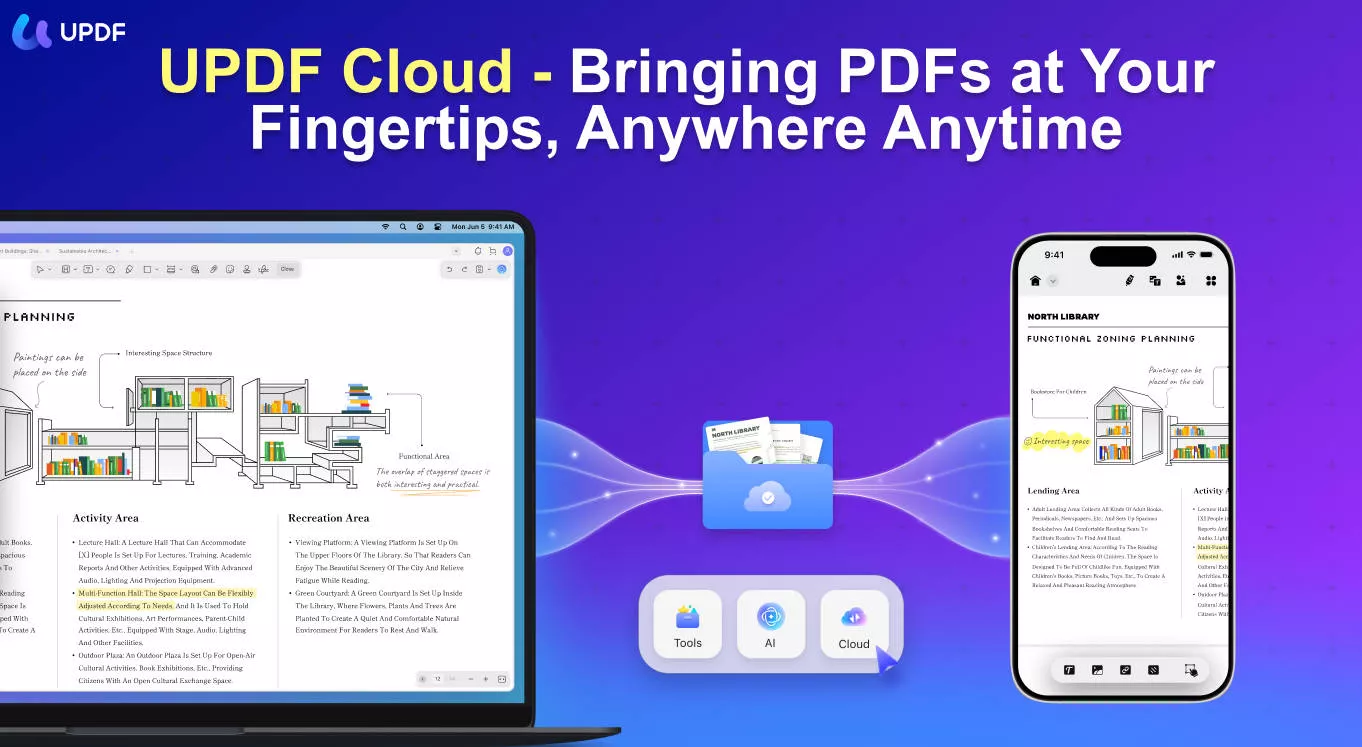
Key Features:
- UPDF Cloud for online file PDF management
- Protects your PDF files
- PDF file merging, splitting, and organization
- Also works as your PDF viewer and editor
- UPDF AI integrated and editing features
To learn more features about UPDF, you can read this review article or watch the below video tutorial.
Pros:
- Manages both online and offline files
- Very simple interface
- Available across all devices
- One license for all platforms and the price is very cheap. Now, it has a big discount to purchase.
Cons:
- Works only with PDF documents
Unlock the full potential of UPDF! Download now for seamless PDF management, editing, and convenient access with UPDF Cloud. Elevate your PDF experience with just a click.
Windows • macOS • iOS • Android 100% secure
3. Directory Opus - Best Paid File Manager on Windows 11/10
Directory Opus is an efficient file manager software known for its powerful features and customization options. Power users choose it because of its adaptable UI, abundant keyboard shortcuts, and customized toolbars. In contrast to other file managers, it may cost more and have a steeper learning curve since it is commercial software.
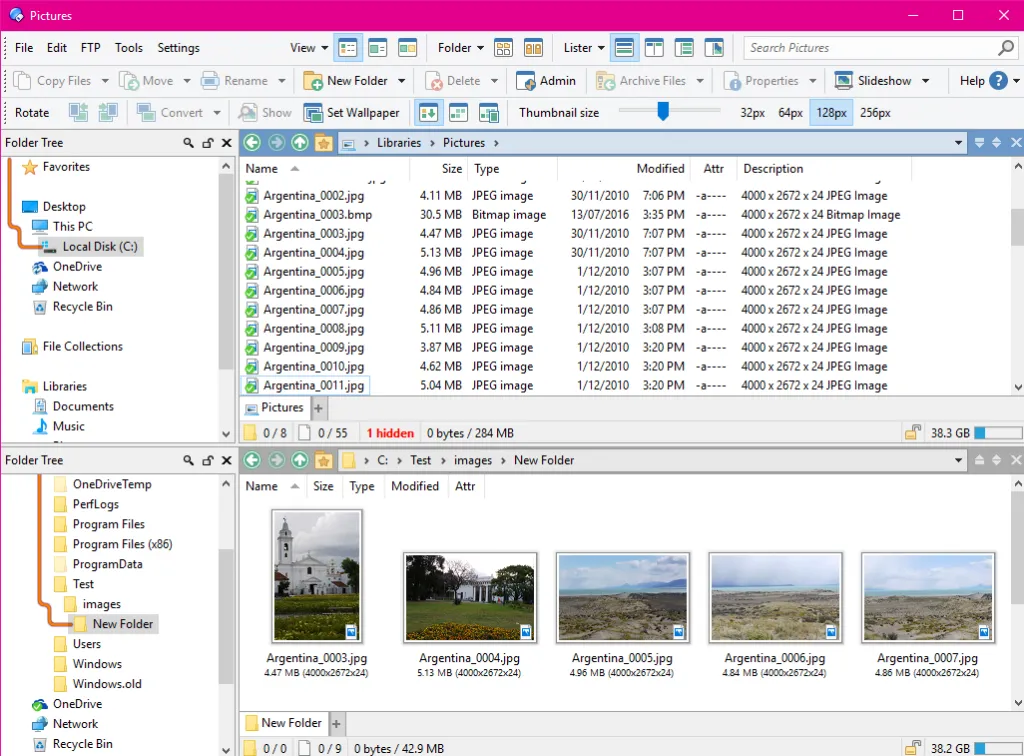
Key Features:
- It allows previewing files without opening them
- Powerful file search, management, and organization
- Highly customizable in terms of interface
- Transfer files with the built-in FTP client
- Automation is supported through scripting
Pros:
- Versatile with support for multiple file types
- Regularly updated
- Feature-rich interface
Cons:
- It can be expensive for some.
4. FreeCommander - The Best Free File Manager on Windows
FreeCommander offers a range of features for efficient file organization and management. File operations supported by FreeCommander include renaming, merging, splitting, and FTP/SFTP support. Additionally, users may add keyboard shortcuts and customize the user interface.
It might not have all the complex features available in professional file managers. It also has various file management tools, including a preview window and a robust file search capability.
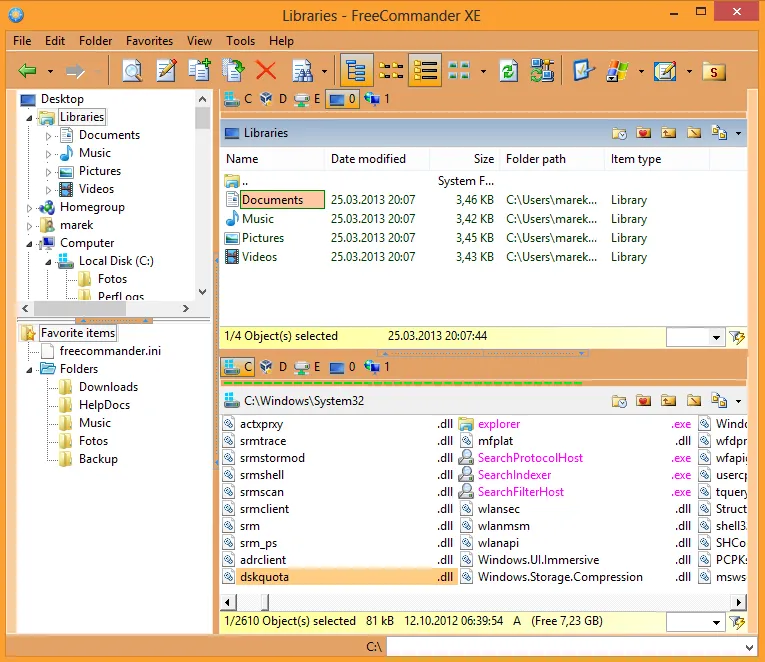
Key Features:
- Dual-pane interface allows viewing files side-by-side
- File preview allows previewing files without opening them
- Built-in FTP client for sharing files on the FTP server
- Automation with scripting
- Supports automation
Pros:
- Open-source and free
- Efficient hardware resource management
- You may customize the interface
Cons:
- Steep learning curve
5. Explorer++ - The Best Open-Source File Manager on Windows
An excellent free replacement for Windows' default File Explorer, Explorer++ is a free and open-source file management software. It offers a simple and effective user experience with features like bookmarking and customizable keyboard shortcuts. Lastly, it offers a less refined UI compared to commercial file managers.
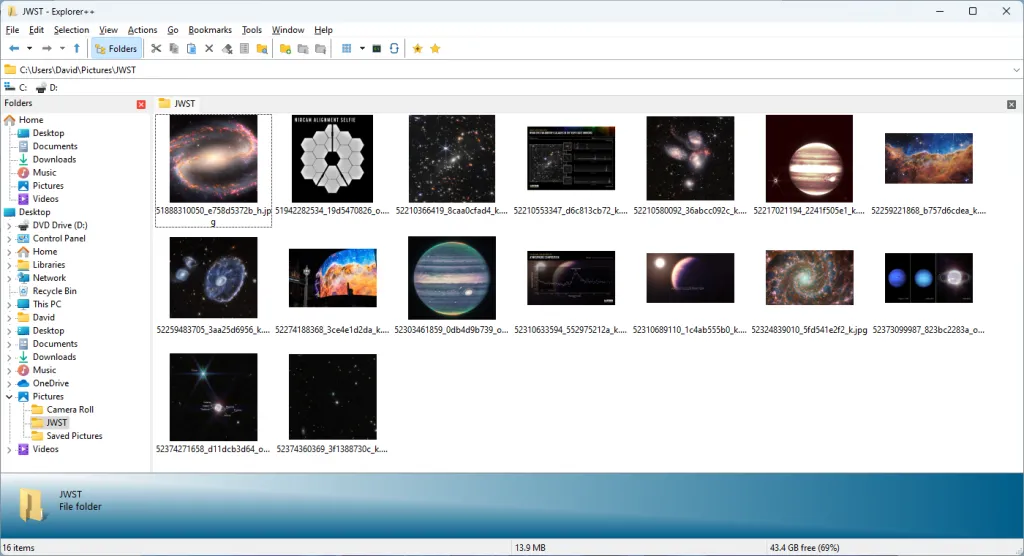
Key Features:
- Browser-like interface with tabs
- · Dual-pane viewing option for comparing files
- Multi-file renaming feature
- Supports merging files and folders with ease
- Supports customizing keyboard shortcuts
Pros:
- Very lightweight, works on low-spec computers
- Native experience with additional features
- Open-source software allows modification at no cost
Cons:
- Not a very user-friendly interface
Also Read: Best File Manager for Android
Part 2. FAQS About File Manager on Windows
Q1. How do I open the file manager in Windows?
Finding File Explorer, a built-in file manager for Windows OS, is extremely easy. It has an icon that looks like a folder, and if you have a desktop or taskbar shortcut, you can use that to open it. Otherwise, pressing the Windows and E keys together will open it. Another way is to go to the Windows Search menu and search for "File Explorer." You can open the app, pin it to the taskbar, start it, or even create a desktop shortcut.
Q2. Where do I find the file manager?
The easiest way to find your file manager on Windows PC is to locate it in the taskbar or the start menu since it is usually pinned there. If you don’t find it, searching for "File Explorer" will help you find it. Once you find the file manager, create its shortcut or pin it somewhere to find it easily in the future.
Q3. What is the best file manager for Windows 10?
The built-in File Explorer works well, but if it lacks features, then the following are your best options for file management on Windows computers:
- UPDF - Best File Manager on Windows for PDF Files
- Directory Opus - Best Paid File Manager on Windows 11/10
- FreeCommander - The Best Free File Manager on Windows
- Explorer++ - The Best Open-Source File Manager on Windows
Enhance your file management on Windows with UPDF! Download now to experience the best PDF file manager for seamless organization and access.
Windows • macOS • iOS • Android 100% secure
Q4. What file manager does Windows use?
Windows uses File Explorer, the built-in file manager on Windows computers. It was known as Windows Explorer in previous versions and has been there since Windows 95. This file manager is capable of managing your offline storage as well as server-based online storage if you have one. Moreover, the GUI and all interface elements of this File Explorer make using it very easy.
Q5. How to change the default file manager in Windows 10
Changing the default file explorer on a Windows PC can be complex for everyone since there are different methods to do this. However, the easiest one is to go to the control panel on your PC. There you need to go to folder options and then to file type. Next, go to drives or files, click advanced, and set the new file manager as your default.
Q6. How to manage PDF files on Windows?
Most file managers mix PDF documents with other file types on your Windows PC. So, separately organizing those documents can be difficult. Instead, if you use UPDF as your Windows PDF file manager, it will automatically organize all your PDF documents in one place that you open with it. You can also use it to organize your PDF files present in UPDF Cloud.
Q7. How to open two file managers on Windows?
To open File Explorer twice, you can press Windows + E keys twice, which will do the job. To open two file manager instances on Windows, open each by clicking their icon on the taskbar, start menu, or desktop shortcut. This way, you will have two different file managers running on Windows simultaneously, but it will also be utilizing more hardware resources.
Also Read: 5 Preview Apps for Windows: Fast and Powerful
Final Words
File management is an essential component of the operating system since it allows you to organize your files in a desired manner. It also helps with finding and accessing files whenever needed. Keeping that in mind, operating systems come with built-in file managers, but the file manager Windows does not meet many users' requirements.
Hopefully, this article has enlightened you about the top choices for choosing a file manager for your Windows PC. Since every option has pros and cons, you can choose according to your desired experience. Most file explorers don’t offer a dedicated PDF organization experience. If you are looking for that, try UPDF since it covers all your PDF management needs.
Download UPDF now and experience seamless synchronization and organization across all your devices through the UPDF cloud.
Windows • macOS • iOS • Android 100% secure
 UPDF
UPDF
 UPDF for Windows
UPDF for Windows UPDF for Mac
UPDF for Mac UPDF for iPhone/iPad
UPDF for iPhone/iPad UPDF for Android
UPDF for Android UPDF AI Online
UPDF AI Online UPDF Sign
UPDF Sign Edit PDF
Edit PDF Annotate PDF
Annotate PDF Create PDF
Create PDF PDF Form
PDF Form Edit links
Edit links Convert PDF
Convert PDF OCR
OCR PDF to Word
PDF to Word PDF to Image
PDF to Image PDF to Excel
PDF to Excel Organize PDF
Organize PDF Merge PDF
Merge PDF Split PDF
Split PDF Crop PDF
Crop PDF Rotate PDF
Rotate PDF Protect PDF
Protect PDF Sign PDF
Sign PDF Redact PDF
Redact PDF Sanitize PDF
Sanitize PDF Remove Security
Remove Security Read PDF
Read PDF UPDF Cloud
UPDF Cloud Compress PDF
Compress PDF Print PDF
Print PDF Batch Process
Batch Process About UPDF AI
About UPDF AI UPDF AI Solutions
UPDF AI Solutions AI User Guide
AI User Guide FAQ about UPDF AI
FAQ about UPDF AI Summarize PDF
Summarize PDF Translate PDF
Translate PDF Chat with PDF
Chat with PDF Chat with AI
Chat with AI Chat with image
Chat with image PDF to Mind Map
PDF to Mind Map Explain PDF
Explain PDF Scholar Research
Scholar Research Paper Search
Paper Search AI Proofreader
AI Proofreader AI Writer
AI Writer AI Homework Helper
AI Homework Helper AI Quiz Generator
AI Quiz Generator AI Math Solver
AI Math Solver PDF to Word
PDF to Word PDF to Excel
PDF to Excel PDF to PowerPoint
PDF to PowerPoint User Guide
User Guide UPDF Tricks
UPDF Tricks FAQs
FAQs UPDF Reviews
UPDF Reviews Download Center
Download Center Blog
Blog Newsroom
Newsroom Tech Spec
Tech Spec Updates
Updates UPDF vs. Adobe Acrobat
UPDF vs. Adobe Acrobat UPDF vs. Foxit
UPDF vs. Foxit UPDF vs. PDF Expert
UPDF vs. PDF Expert





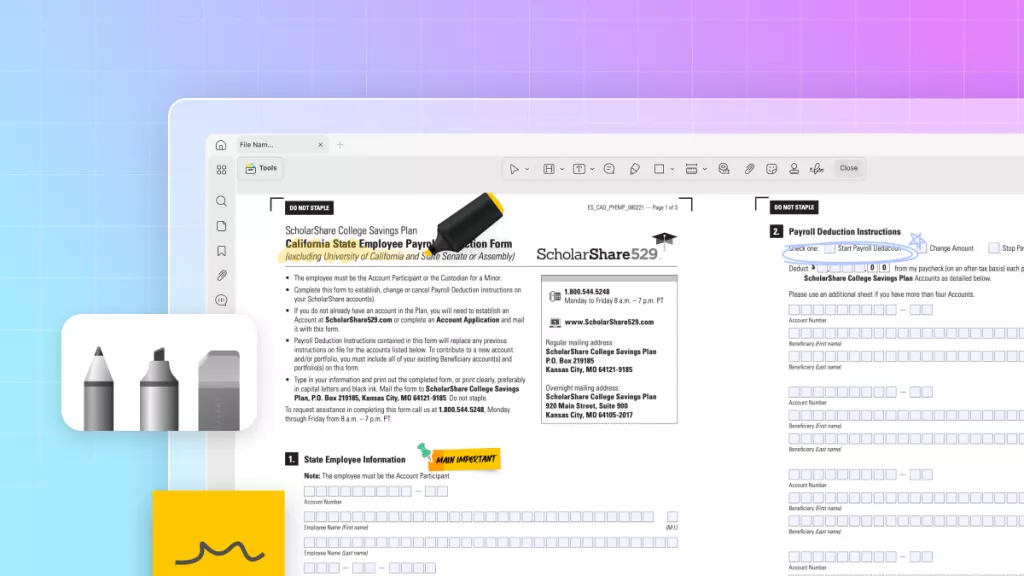



 Enrica Taylor
Enrica Taylor 
 Enola Davis
Enola Davis 
 Enya Moore
Enya Moore 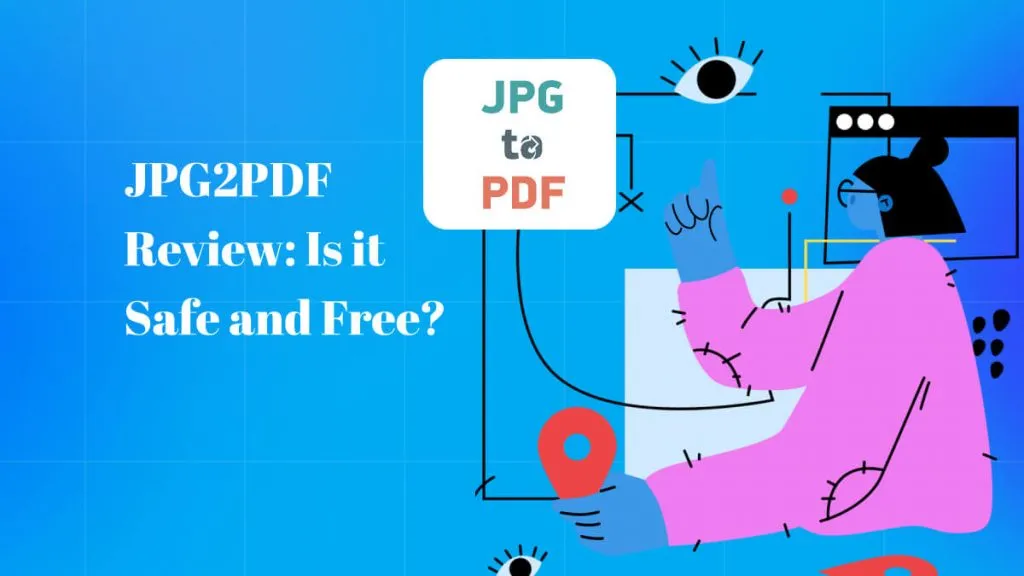
 Enola Miller
Enola Miller 
